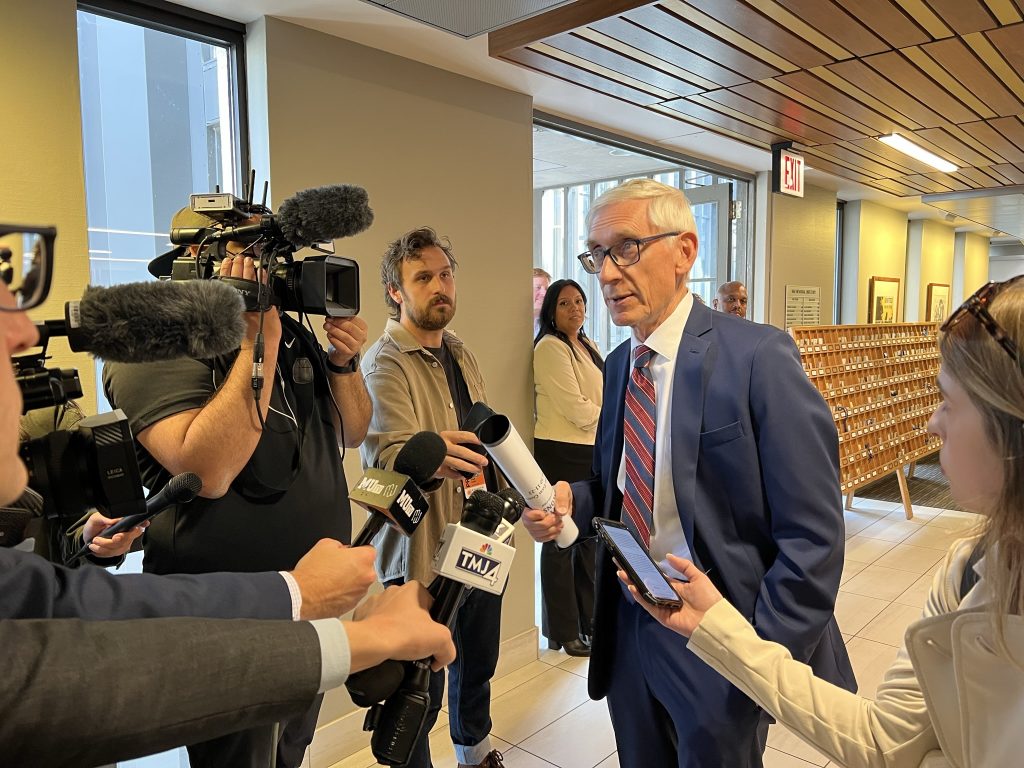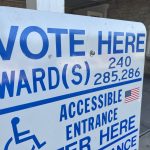Gov. Evers Declares State of Emergency Due to SNAP Funds Cutoff
Directs state agencies to take all necessary measures to address the emergency.
Gov. Tony Evers has declared a state of emergency in Wisconsin due to federal funding for the Supplemental Nutrition Assistance Program (SNAP), known as FoodShare in Wisconsin, being cut off over the weekend.
“Wisconsinites and Americans across the country are now scrambling, trying to figure out how to feed their families,” Evers said in a statement. “There’s no excuse for it, and this is a direct result of Republicans in Congress and the Trump administration, who’ve done nothing to help. As the courts agree, the Trump Administration could’ve stopped this from happening, but they didn’t, and now, Wisconsin’s kids, families, and seniors are worried about whether or when they’re going to eat next. This shouldn’t be happening.”
Evers issued the declaration on Friday evening and ordered state agencies to take actions within their powers to provide support to Wisconsinites.
Federal funding for SNAP ran out on Nov. 1, and the cuts are affecting about 700,000 Wisconsinites who rely on SNAP.
The U.S. Department of Agriculture has a $5 billion contingency fund for SNAP, but the Trump administration had claimed it couldn’t use it to fund regular benefits during the shutdown.
Two judges ruled on Friday that the Trump administration should use the contingency funds. It has until Wednesday to do so. The Trump administration said Monday it would partially fund SNAP following the rulings, though it is unclear how quickly SNAP beneficiaries will receive funds and how much they will receive.
Until then, Evers said the executive order would help ensure Wisconsin agencies can do what they can within their power to support Wisconsinites.
The order directs state agencies to take any and all necessary measures to address the emergency by prohibiting price gouging due to loss of FoodShare funding and economic disruptions and ensuring resources are available for Wisconsinites, including information about emergency aid and consumer protection.
“The federal government shutdown has gone on long enough — it has to end,” Evers said. “Republicans must start working across the aisle to end the federal government shutdown and extend tax credits that will lower the cost of healthcare so Wisconsinites and Americans across our country have economic stability and certainty, and the Trump Administration must take action and do so quickly to fix the damage they’ve caused and ensure folks can get basic food and groceries they need to survive without any further delay.”
Evers is limited in the steps that he can take unilaterally to fill gaps and address the loss of funds. Some states, including Connecticut, Louisiana, Virginia and Vermont, have taken steps to partially fund SNAP using state and local dollars while federal funds are unavailable. For Wisconsin to take similar steps, however, it would require cooperation from the Republican-led Legislature and Evers.
A bill would need to pass both houses of the Legislature to appropriate funds and be signed by Evers.
Senate President Mary Felzkowski (R-Tomahawk) said in an interview with WISN-12 on Oct. 26 that it was unlikely that state lawmakers would take action to backfill SNAP.
“My heart goes out to people, but this is a federal issue, and I don’t see the state having the resources to do that,” Felzkowski said. “I just wish that the Democrats would sign this continuing resolution and vote for it, and let’s move on. They shouldn’t be playing games like this. You don’t hold people hostage over these kinds of issues, so no, I don’t see us stepping in.”
The government shutdown is entering Day 34 with no end in sight,
During a virtual press conference on Monday, a group of Wisconsin legislative Democrats criticized Republicans for letting SNAP funding lapse and for not taking more actions during the state budget to ensure that state programs support food assistance and farmers, saying they’ve fallen short when it comes to providing necessary aid for Wisconsinites.
“The federal government is using hunger to negotiate, and I think that’s immoral,” Rep. Robyn Vining (D-Wauwatosa) said.
Rep. Jenna Jacobson (D-Oregon) noted that the federal funds the Trump administration has agreed to release will not fully fund SNAP.
“The funds being released — it’s only a partial payment, so there will still be families and kids that go hungry and yet Wisconsin’s portion of FoodShare is about one-third of the White House ballroom,” Jacobson said, referencing the renovations that Trump has undertaken in recent weeks to demolish the East Wing of the White House to build a ballroom. “We could get it funded.”
Pfaff highlighted a number of measures that Democratic lawmakers have proposed this year, including free school meals for students, funding for a food security grant program, which would assist food banks and funding for a farm to fork grant program, which would provide state funding to help connect local entities with cafeterias to nearby farms to provide locally produced foods.
“Every single one of these measures were either completely eliminated, or as in the case of the Farm to Fork program, severely cut by the Republican-controlled Legislature, which struck $20 million out of our Food Security Grant program, which would be very helpful right now,” Sen. Brad Pfaff (D-Onalaska) said.
Asked whether the state Legislature or Evers should play more of a role as the shutdown continues and SNAP isn’t funded, however, Pfaff said the lawmakers were “not here today to talk about that.”
“What we are here today is to talk about what the [state] Legislature has within its jurisdiction right now, there’s bills that are ready to go,” Pfaff said.
Wisconsin Gov. Tony Evers declares state of emergency due to lapse in SNAP funding was originally published by the Wisconsin Examiner.
If you think stories like this are important, become a member of Urban Milwaukee and help support real, independent journalism. Plus you get some cool added benefits.























Excuse me? It is not Democrats that have refused to bring the 3 (three) House resolutions up for a vote in the Senate. Of course, House Democrats are refusing to support the government funding bill for the same reason they are working to find state funds to support FoodShare. BECAUSE Republican actions are hurting Wisconsinites with the fewest resources.
Mary Felzkowski demonstrates an abhorrent lack of compassion for Wisconsin residents–including her own constituents–impacted by the government shutdown. The Democratic Party has its problems. But when it comes to the needs of poor working and farming families, Democrats do listen and do take action.
It’s a federal issue alright. The law is that the Executive branch needs to continue to fund SNAP.
And the debate between health care access vs. food insecurity is a false argument setup by conservatives to create more division between low and middle income folks, while the rich party at Mar-a-Lago like its the roaring ’20s laughing at the rest of us.